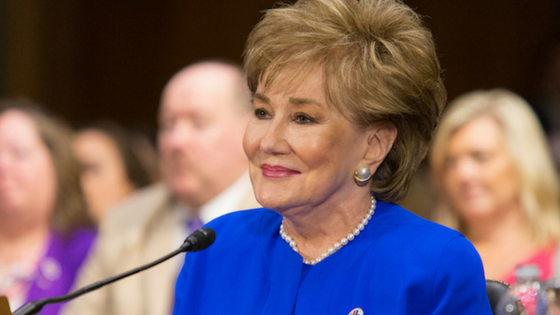At the Cutting Edge of Social Intelligence – Positive Leadership, with Positive Results for All

Image credit: www.mariashriver.com
In an article published by the business and technology guide Simplicable in 2015, writer John Spacey provided a highly succinct and resonant definition of social intelligence.
Social intelligence was, he said, “a broad category of human intelligence that enables people to negotiate social relationships and to accomplish goals in social environments.”
Spacey’s definition hits the nail on the head and underlines the power that social intelligence affords to those who can wield it correctly. However, it also underlines the dangers that are inherent in the development of this important leadership trait.
In the article, he speaks of goal accomplishment; something which each of us bears in mind during any social interaction - for example, we may want someone to help us with a personal project, or we may simply want someone to tell us what the time is - but something which we should treat with caution.
Possessing acute social intelligence, we may think it makes it possible for us to see our fellow humans as mere commodities, as a means which we can use to get what we want. Thus, the nature of social intelligence gives us power. To possess genuine social intelligence, we must never lose sight of positive and altruistic goals as we aim to use such intelligence to benefit society as a whole, rather than just ourselves. This is true leadership.
So, how is this done? For an excellent example of how to deploy social intelligence within leadership, we can look to Elizabeth Dole, the former head of the Red Cross.
Elizabeth was always well known as an excellent communicator and as someone who made everyone she encountered feel special. With a vibrant career in public service, Ms Dole met many people. This would be overwhelming to some, but not to her. Instead, she made a point to remember the names of those she met and to listen carefully to discover what they were passionate about. Instantly, those who spoke to the charity leader were set at ease and Ms Dole found herself forming genuine, lasting relationships.
Taking over at the Red Cross, Elizabeth Dole quickly understood what needed to be done to help the organisation rise above its challenges at the time. The not-for-profit was desperately in need of funding and was struggling in key areas, putting the lives of the millions who depended on the organisation for support at risk. She was able to use her socially intelligent approach to human relationships to secure the additional funding required. She also doubled the Red Cross’ network of disaster relief specialists.
In addition to this great work, she was able to put in place a new initiative aimed at securing the charity’s blood supply for necessary transfusions and supporting healthcare teams out in the field. During her work with the Red Cross, she provided us all with a shining example of how social intelligence - with altruism and empathy at its heart - can make a huge difference. The long-term impact of her leadership is still felt by people who benefit from the Red Cross Society today.
Many of us will never experience the weight of responsibility which comes with leading an organisation like the Red Cross. However, most of us will find ourselves in a position in which strong leadership is necessary, whether this is in the workplace, in public office, or within our own homes or social groups.
When this happens - when it is our time to step up and to make our voices heard – we want to be able to use our own, carefully nurtured social intelligence responsibly. To look at the bigger picture and consider: “what can I do - not simply to help myself and my own social standing - but to help the society in which we all exist”. This consideration is key to what it means to truly build social intelligence for ones self and others too.
Margaret Bell, AM - Founder and CEO of Chain Reaction Foundation.
| Website | Donate to our Purple Heart Appeal | Contact Us | Purchase the Book |
Image Source: Mariashriver.com
